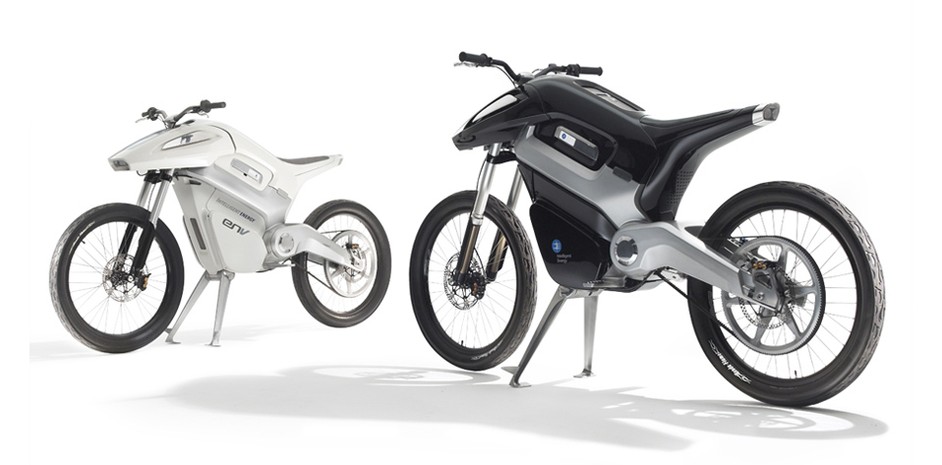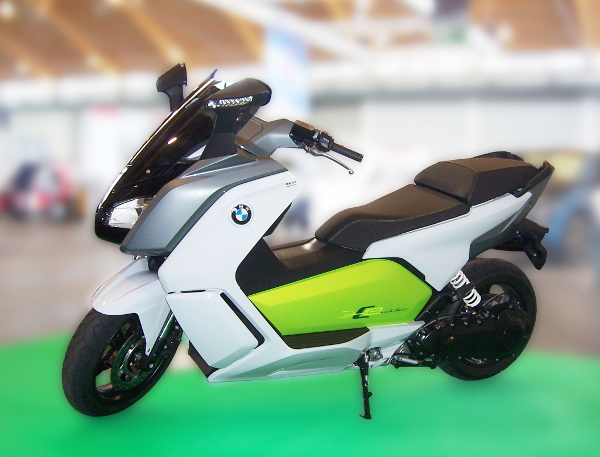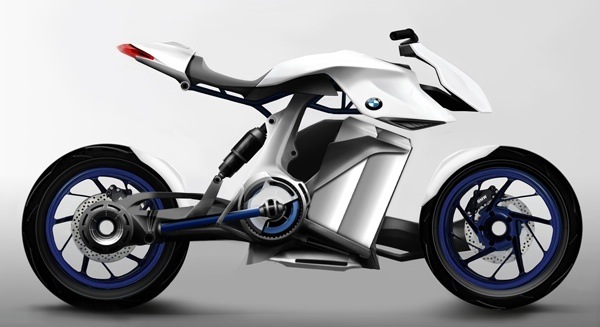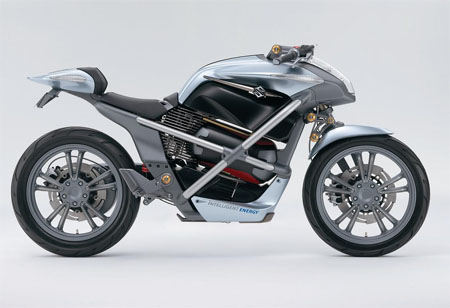Cell Mates
Hydrogen Fuel Cells, The Future For Motorcycle Power?
John Newman
Who among us could, with any honesty, say that when motorcycles powered by electricity were first proposed, they would have predicted one of these bikes would be capable of lapping the TT course at just over 117mph, and be ridden by John McGuiness in the grid company of other TT luminaries, such as Bruce Anstey?
Many new technologies are greeted with scepticism, questioning, suspicion, and an "it'll never catch on" tendency. Electric motorcycles were certainly in this category and so far, despite those TT performances, we've yet to see them purchased and used on the roads in numbers. There are good reasons for this: battery performance limitations mean there is a trade-off between speed attained and distance covered. Also, in the UK, despite the sales advances being made by electric and hybrid cars, charging points and systems are limited. Oh, and I almost forgot this one: electric bikes are expensive.
This hasn't held back development and innovation. BMW introduced its C Evolution scooter a few years ago on the back of electric-powered car innovation, and I've always thought that if BMW is taking a punt on electric power, there has to be something going for it in the longer term.
In the search for cleaner alternative fuel propulsion, conventional battery and recharge power isn't the only game in town, and Suzuki has just announced a programme to develop a new generation of motorcycles powered by hydrogen fuel cells. Now the physicists out there will know all about this, but many people, like me, will ask, "what that?", and take to the internet to find out more.
Here's what I found. Fuel cells generate electrical power quietly and efficiently without pollution. The by-products of fuel cells are heat and water, and they work like this: a fuel cell converts the chemicals hydrogen and oxygen into water and, in the process, it produces electricity.
With a fuel cell, the chemicals flow constantly through the cell so it never goes dead - as long as there's a flow through the cell, electricity comes out. Unlike batteries, which have all the power producing chemicals stored inside and eventually go dead, meaning you discard or recharge them.
There are a number of different fuel cell types, but the one that is being concentrated on as far as auto power is concerned is called a Polymer Exchange Membrane Fuel Cell (PEMFC). It's a complex process, but in very simple terms, hydrogen and oxygen are forced through the layers that make up the material cell to end up with the two by-products of electricity and water. A good explanation is offered at
howstuffworks.com.
Suzuki has formed a joint venture with the UK-based company, Intelligent Energy, who has over twenty-five years experience in designing and devising fuel cell technology, and especially that in relation to hydrogen-based power generation. They expect to begin testing motorcycles on public roads in Japan later this year. One of the advantages they are working on is the ability of hydrogen fuel cells to be powered (charged) in minutes. Whereas more conventional battery power can take hours.
A prototype scooter was developed several years ago, and it's easy to envisage this technology being applied to this type of powered two-wheeler. Not so easy to imagine a GSXR or Hayabusa powered up and "silent". But, at one time, vehicles on our roads had to be preceded by a man with a red flag to protect the populace from any harm.
Further Updates
At a press conference on 24th February the CEO of Honda, Takahiro Hachigo, announced that he fully expects two thirds of their vehicles to be powered by fuel cells, electricity, or plug in hybrid by 2030.
Would you buy a fuel-cell or electric-powered motorcycle? Tell us your thoughts at
news@wemoto.com.
Comments
25/02/16 Fuel cells all the way, much more practical
26/02/16 Alternative fuel vehicles are now at the stage that petrol powered vehicles were 120 odd years ago, and look at how they developed.
26/02/16 Been saying for years this is the way to go,oil and gas company's don't like it though.vested interests ,through electricity generation.
28/02/16 Correct me if I'm wrong but does this mean we'd have to carry tanks of pressurised oxygen and hydrogen?
28/02/16 Just the hydrogen I expect. I think there's normally enough oxygen in the atmosphere for this to work. That said, remember that hydrogen is an energy carrier and not an energy source..
28/02/16 We could just be carrying water-dihydrogen monoxide. Relatively simple to reduce to hydrogen and oxygen and safer. Better than carrying explosive liquids between our legs!
28/02/16 I did wonder that, but one of the reasons water is so stable is the strength of the bonds between the H2 and the O. To split them wouldn't you have to put some serious energy into it in the first place?
28/02/16 Have a water tank, a few electrodes & a catch system to pressurise the gas & your good to go! I looked at making one & putting it in the garage to make gas in the day to fuel up at night..
28/02/16 Good idea. Refuelling is quicker, at least till they create a standard for electric vehicle batteries so we can just swap them over at a garage.
28/02/16 No doubt this is the future and not only for motorcycles though I believe that they should all go down the hydrogen fuel cell route and pool all their resources, lithium is a slow growing ore that takes thousands of years to accumulate. Leave it for phone batteries people!
www.greentechmedia.com/.../Is-There-Enough-Lithium....





